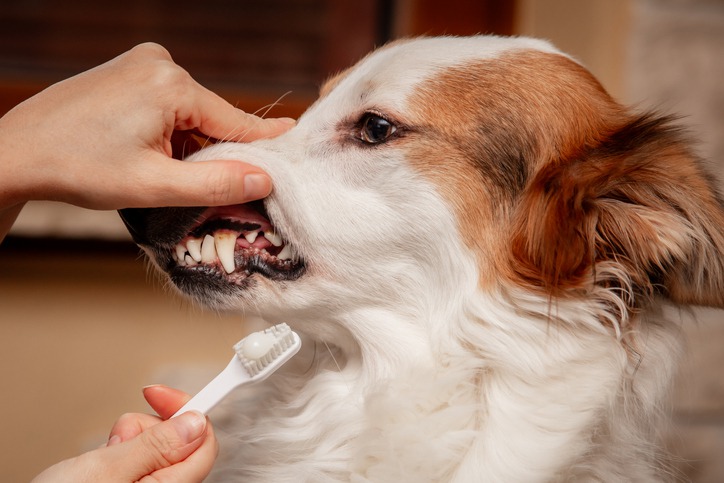Emergencies can happen at any time, leaving pet owners anxious and unprepared. Having a plan for after-hours pet emergencies is crucial to ensure your furry friend gets the immediate care they need. This guide will help you recognize emergencies and provide actionable steps to find reliable emergency vet care near you.
Recognizing an Emergency
The first step in handling pet emergencies is knowing when your pet requires urgent care. Some common signs of an emergency include:
-
Difficulty breathing
-
Severe vomiting or diarrhea
-
Trauma or injury (e.g., being hit by a car)
-
Unconsciousness or unresponsiveness
-
Severe pain or distress
-
Persistent bleeding
If you are still determining whether your pet’s situation requires immediate attention, it’s always better to err on the side of caution and seek professional help. For more detailed information, click on this page.
Steps to Finding an After-Hours Vet
1. Have a Plan
Identify local clinics that offer 24/7 services before an emergency arises. This preparation can save precious time and reduce stress when an actual emergency occurs. Keep a list of these clinics in an easily accessible place, such as on your refrigerator or saved on your phone.
2. Use Online Directories
Several websites are designed to help you locate emergency services for pets. Websites such as Emergency Vet USA can provide a list of local emergency veterinarians. Bookmark these directories and check them periodically to ensure the information is up-to-date.
3. Consult Your Regular Vet
Your regular veterinary clinic can be an excellent resource for after-hours recommendations. Many vets maintain relationships with emergency clinics and can provide trusted referrals. They may also have an after-hours contact number or a specific clinic they work with for emergencies.
4. Save Contact Information
Keep a list of emergency vet contacts in an accessible place, such as your phone, car, or on your refrigerator. Include the clinic’s name, address, phone number, and hours of operation. This way, you won’t waste valuable time searching for this information during an emergency.
Preparing for a Visit
Transport Options
Having a safe and effective way to transport your pet is essential during an emergency. Options include:
-
Pet carrier: Always have a sturdy carrier available for smaller pets.
-
Blanket: For larger pets, a blanket can be used as a makeshift stretcher.
-
Harness and leash: Ensure you have a secure harness and leash ready for quick transport.
Medical Records
If possible, bring your pet’s medical records or at least know important details such as current medications, allergies, and previous health conditions. Having this information on hand can help the emergency vet provide quicker and more accurate treatment.
Additional Tips
Frequent Check-ups
Regular health check-ups and vaccinations for pets can prevent many health issues and reduce the likelihood of emergencies. Schedule routine visits to your veterinary clinic to keep your pet’s health in check and stay updated on necessary vaccinations and preventive care.
First Aid Kit
Keep a pet first aid kit at home and in your car. Essentials to include are:
-
Sterile gauze and bandages
-
Antiseptic wipes
-
Hydrogen peroxide (for inducing vomiting, only under vet guidance)
-
Thermometer
-
Tweezers and scissors
-
Emergency contact numbers
A well-stocked first aid kit can help you manage your pet’s minor injuries and provide initial care while you seek professional help.
Pet Insurance
Investing in pet insurance can be a lifesaver during emergencies, ensuring that financial considerations do not delay critical care for your furry friend. Many pet insurance plans cover emergency treatments, surgeries, and even overnight stays. Research different pet insurance providers and choose a plan that offers comprehensive emergency coverage. Having insurance can bring peace of mind, knowing you are financially prepared for unexpected veterinary bills.
Resources
Finding the right resources is crucial when preparing for pet emergencies. Here are some tools you can use:
-
Emergency Vet USA: A directory of emergency veterinary services across the nation.
-
Pet First: Pet insurance company offering emergency care coverage.
-
AVMA Emergency Care: The American Veterinary Medical Association’s guide for emergency pet care.
Local Expertise
If you are a resident looking for a reliable veterinarian in Redmond, Oregon, check out local clinics that offer 24/7 emergency care services. Having local contacts can be a lifesaver during urgent situations, ensuring your pet receives immediate attention from professionals familiar with the Redmond area.
Final Thoughts
Being prepared for pet emergencies can make a significant difference in your pet’s health and well-being. By recognizing the signs of an emergency, having a plan in place, and knowing where to find reliable emergency vet care, you can ensure your furry friend gets the help they need quickly and efficiently.
Remember to consult your regular veterinary clinic for recommendations, keep emergency contact information handy, and stay updated on vaccinations for pets to prevent emergencies. Proactive preparation is the best way to ensure your pet’s safety and peace of mind.



